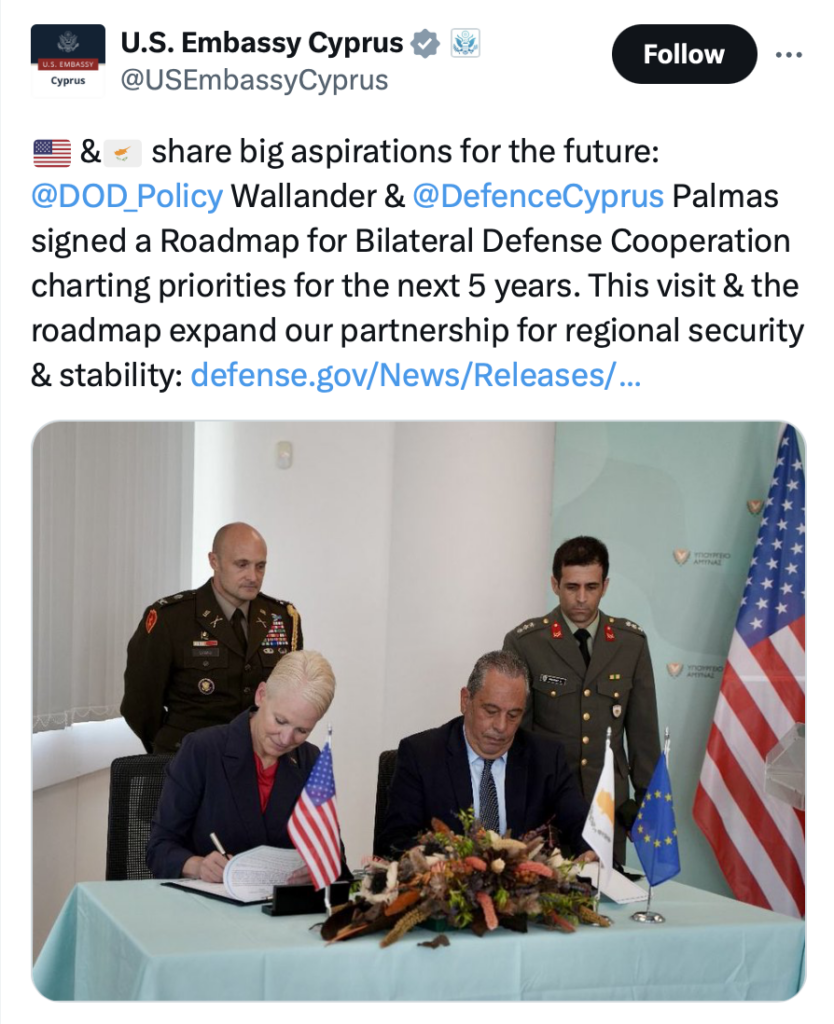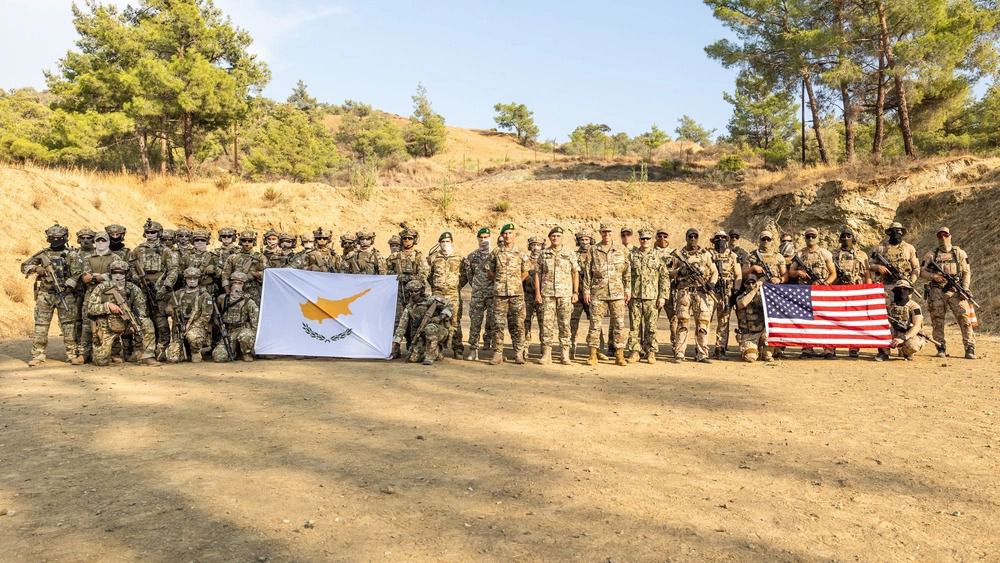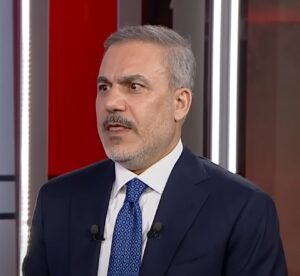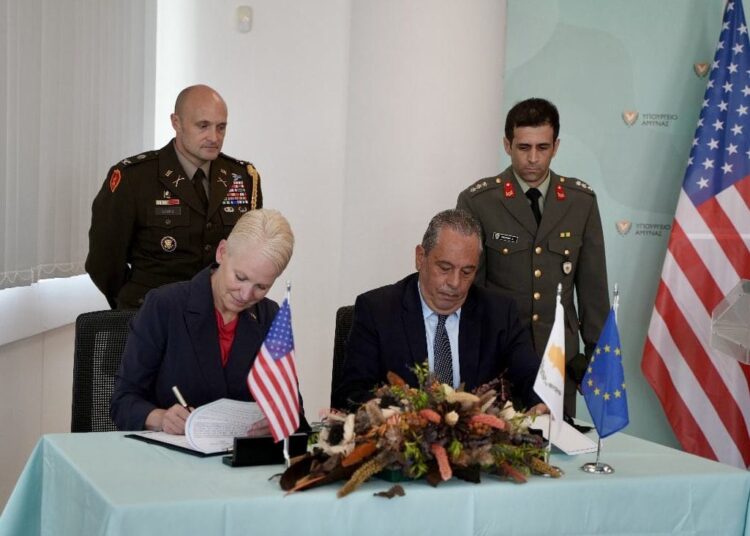Levent Kenez/Stockholm
Turkey has condemned the signing of a roadmap for enhancing bilateral defense cooperation between the US and Cyprus on September 9 in Nicosia.
According to a statement from the US Department of Defense (DoD) on Monday, Celeste Wallander, assistant secretary of defense for international security affairs, and Vasilis Palmas, the minister of defense of the Republic of Cyprus, signed the US-Cyprus Roadmap for Bilateral Defense Cooperation in Nicosia on September 9. This roadmap serves as a key framework outlining the priorities and future direction of defense cooperation between the two countries over the next five years, marking a significant step in strengthening their security partnership. DoD states that the agreement builds on the second US-Cyprus Defense and Security Cooperation Dialogue, which took place in Washington last June, aiming to bolster stability and security in the eastern Mediterranean.

According to a joint statement by the two countries following the signing of the roadmap, they reaffirmed their commitment to working together to address current and future international security challenges through the signing of the Roadmap for Bilateral Defense Cooperation.
In a statement released on September 11, the Turkish Ministry of Foreign Affairs expressed deep concern over the deal, accusing the US of undermining regional stability. “These steps taken by the US authorities to the detriment of the security of the Turkish Cypriot side, including the announcement last June of the launch of a strategic dialogue with the Greek Cypriot Administration, undermine the neutral US position towards the island of Cyprus and make it more difficult to reach a just, lasting, and sustainable settlement of the Cyprus issue,” the statement reads.
Cyprus has been divided since 1974, when Turkey invaded in response to an abortive coup engineered by the then-military junta in Athens that aimed to unite the island with Greece. The self-declared Turkish Republic of Northern Cyprus (KKTC or TRNC) is recognized only by Turkey.

Turkish President Recep Tayyip Erdogan has repeatedly claimed that Cyprus is being used by Israel as a logistical base for military and intelligence purposes. Erdogan’s allegations came after Hezbollah leader Hassan Nasrallah mentioned them in a June 19 speech, stating that Cyprus would be considered “part of the war” if Israel used Cypriot airports and bases in an attack on Lebanon.
Turkish Foreign Minister Hakan Fidan also voiced Turkish concerns about the increasing military role of the Greek Cypriot administration. Speaking on Habertürk on June 24, Fidan said Turkey has been warning European actors about the region becoming an operational center. He said intelligence reports indicate southern Cyprus is being used as a base for operations targeting Gaza by certain countries. The sudden designation of the region as a logistics base, disguised as a military facility, is seen as a troubling development.

Fidan emphasized that the militarization of southern Cyprus and Greece will not benefit them in the long run. He warned that involvement in ongoing conflicts in the Middle East could eventually bring repercussions to the region, including to Turkey, given its geographical proximity.
He urged regional actors to recognize the serious militarization that is occurring and to take steps to prevent further escalation, stressing the importance of ensuring that no additional threats emerge in the area.
Ankara, which does not recognize the Republic of Cyprus, refers to it as “South Cyprus” or the “Greek Cypriot Administration.”
Nationalist circles in Turkey have also reacted strongly to the agreement between the US and Cyprus. Retired admiral Cem Gürdeniz, an ultranationalist and staunch supporter of Blue Homeland (Mavi Vatan), an aggressive naval doctrine identified with Turkey’s policies in the Mediterranean, has voiced concerns about the recent US-Cyprus security agreement on X. Gürdeniz warns that the deal could shift the geopolitical balance in the region against Turkey. He said the establishment of US bases and logistical support facilities in critical areas such as the Suez Canal, Levantine coastlines and southern Aegean passages could negatively impact Turkey’s position and favor other global powers competing in the eastern Mediterranean. Additionally, he said this development could provide Israel with significant strategic advantages, particularly in terms of advanced defense and support in ongoing conflicts.
Sebahattin İsmail, a former advisor to Rauf Denktaş, the founding president of the KKTC, reacted to the agreement by asserting that a defense cooperation agreement between Turkey and the KKTC must be signed, emphasizing that Turkey should be granted permanent land, sea and air bases. He tweeted that if military agreements between the Greek Cypriot administration and the US, Israel and France do not violate previous international agreements, then neither should the Turkey-KKTC military agreement.
Additionally, Russian state-owned news agency Sputnik reported on the agreement in its Turkish edition, stating that the US, having lifted its arms embargo on Cyprus two years ago, continues to strengthen its support for the Greek Cypriot administration with arms and logistical assistance as a key move against Turkey in the eastern Mediterranean equation. Sputnik also included reactions from retired Turkish military officers who have voiced their objections to the agreement.












